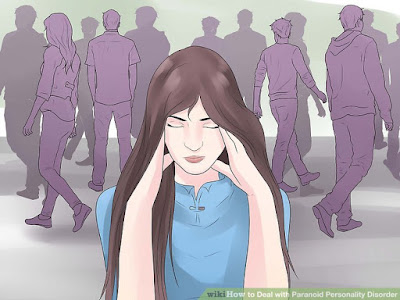Mental illness is often taken careless by the people . For some or other reason the symptoms may be seemingly to appear in a person and compromise themselves . As most of the symptoms of mental illness is experienced by almost all of us now and then , so we completely ignore that it is usual occurrence .
If the symptoms occurs for a long time or prolonged time then , you must take care to consult with a psychologist or psychiatrist .
A mental illness is a disease that causes mild to severe disturbances in thought and/or behaviour, resulting in an inability to cope with life’s ordinary demands and routines.
It is found that there are 200 classified forms of mental illness . Among these , the major mental illness are depression , schizophrenia and anxiety disorder. Mental illness causes changes in behaviour , mood , personality , personal habits and social disorder.
Mental Health may be due to excessive stress because of a bad situation or series of events or biological factor or environmental factor or chemical imbalance in the brain or genetic factor . Like cancer , diabetes , heart disease mental illness can be both physical and emotional .
Symptoms of the Mental Disorder
The following are the symptoms and signs that if you or your loved one is facing must hurry up to consult a doctor immediately .
It is especially important to pay attention to sudden changes in thoughts and behaviours. If you have combination of these symptoms not just any one change, indicates a problem that should be assessed.
Symptoms can be categorized according to the age groups of the people :
- In Adults, Young Adults and Adolescents
- In Older Children and Preadolescents
- In Younger Children
Adults , Young adults and Adolescents
- Confused thinking
- Prolonged depression (sadness or irritability)
- Feelings of extreme highs and lows
- Excessive fears, worries and anxieties
- Social withdrawal
- Dramatic changes in eating or sleeping habits
- Strong feelings of anger
- Strange thoughts (delusions)
- Seeing or hearing things that aren't there (hallucinations)
- Growing inability to cope with daily problems and activities
- Suicidal thoughts
- Numerous unexplained physical ailments
- Substance use
In Older Children and Preadolescents :
- Substance use
- Inability to cope with problems and daily activities
- Changes in sleeping and/or eating habits
- Excessive complaints of physical ailments
- Changes in ability to manage responsibilities - at home and/or at school
- Defiance of authority, truancy, theft, and/or vandalism
- Intense fear
- Prolonged negative mood, often accompanied by poor appetite or thoughts of death
- Frequent outbursts of anger
In Younger Children:
- Changes in school performance
- Poor grades despite strong efforts
- Changes in sleeping and/or eating habits
- Excessive worry or anxiety (i.e. refusing to go to bed or school)
- Hyperactivity
- Persistent nightmares
- Persistent disobedience or aggression
- Frequent temper tantrums
How to cope day to day
Accept your feelings :
You have to accept that your behaviour is abnormal and need to go for counselling get the best treatment and recover as soon as possible. Only when you accept and talk with your closed one about your problems you could find a solution to solve your mental illness.
Handling unusual behaviour :
Even you or your loved one show an unusual behaviour you must analyse initially why there is a sudden change in the behaviour of the person. After self -examine test along with the doctor advice you must be able to handle the situation . This way you can cope with the mental illness.
Getting help from the support Network:
There are many social forums and support groups online . You can chat or ask queries to the forums , so that you will get suggestions from similar groups and people.
Taking time out :
Withdraw work for the two days and spend going to outside visiting a friends , relatives place . This can relax you from the stress and that you can cope up with mental illness easily . Keep your mind always in a relaxed and comfortable.



